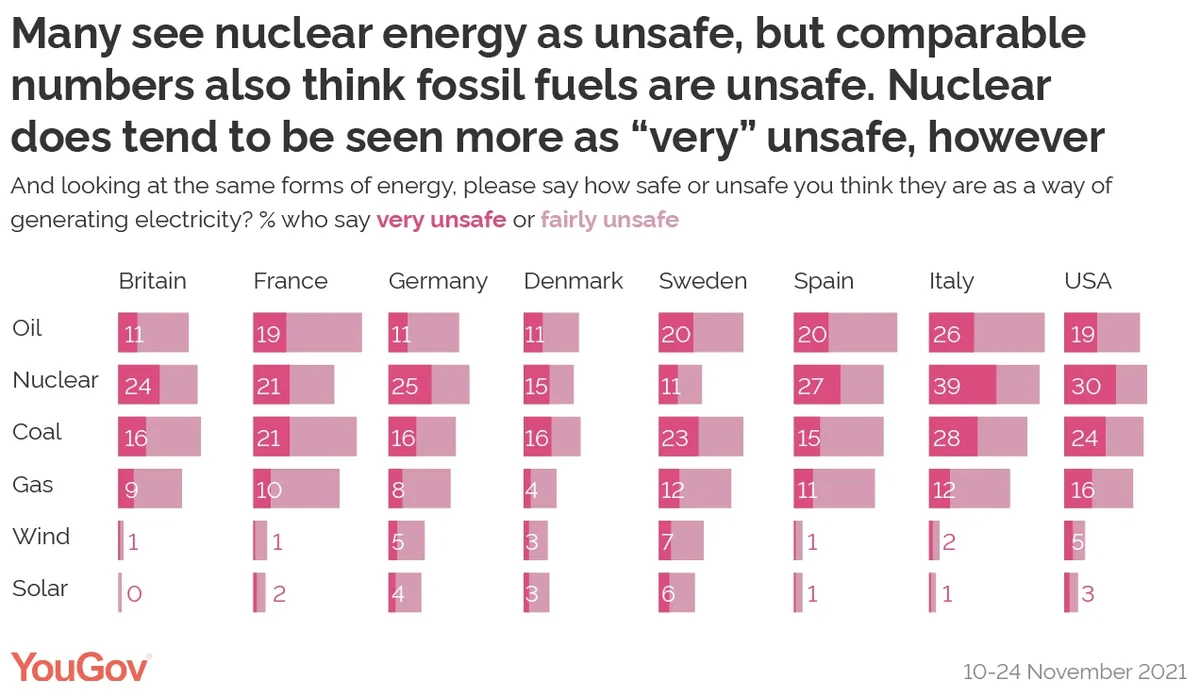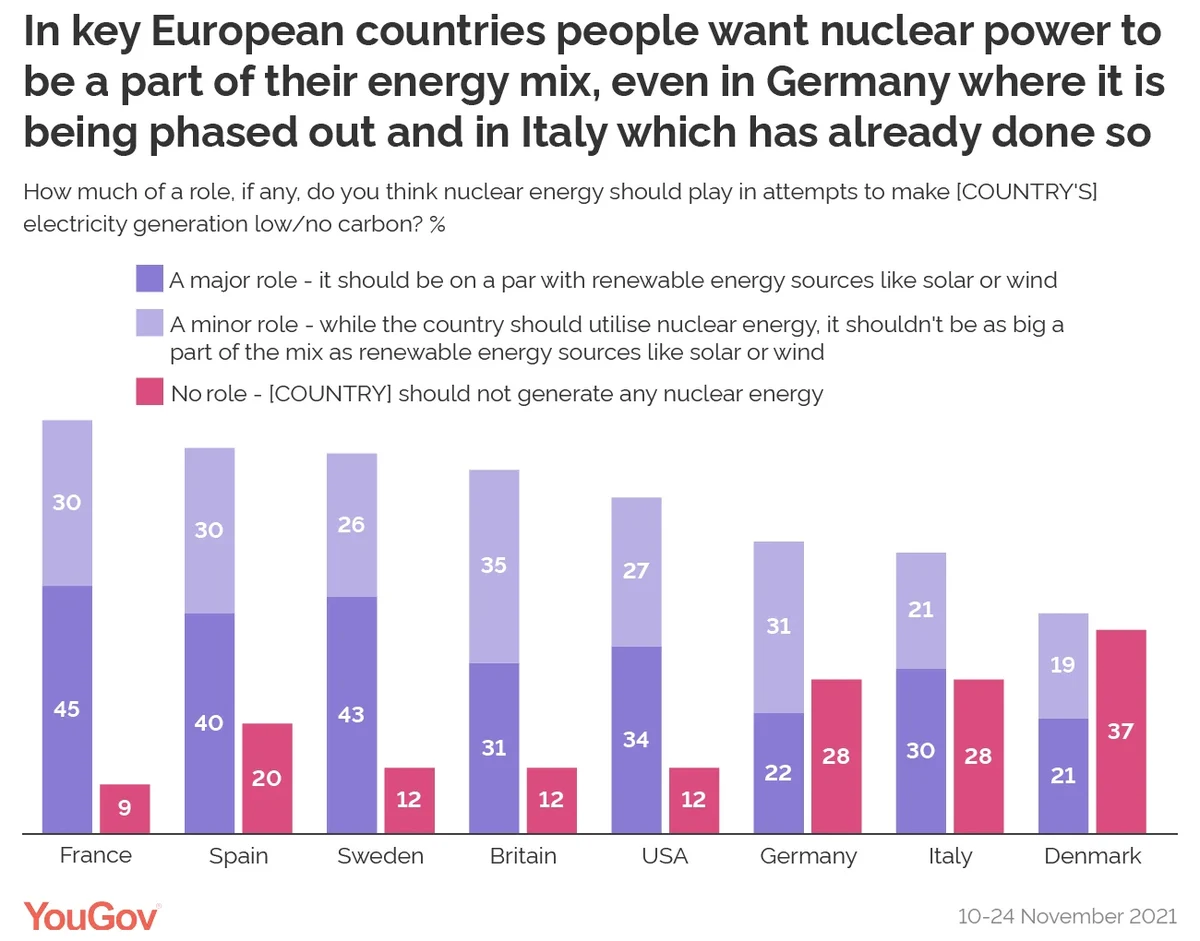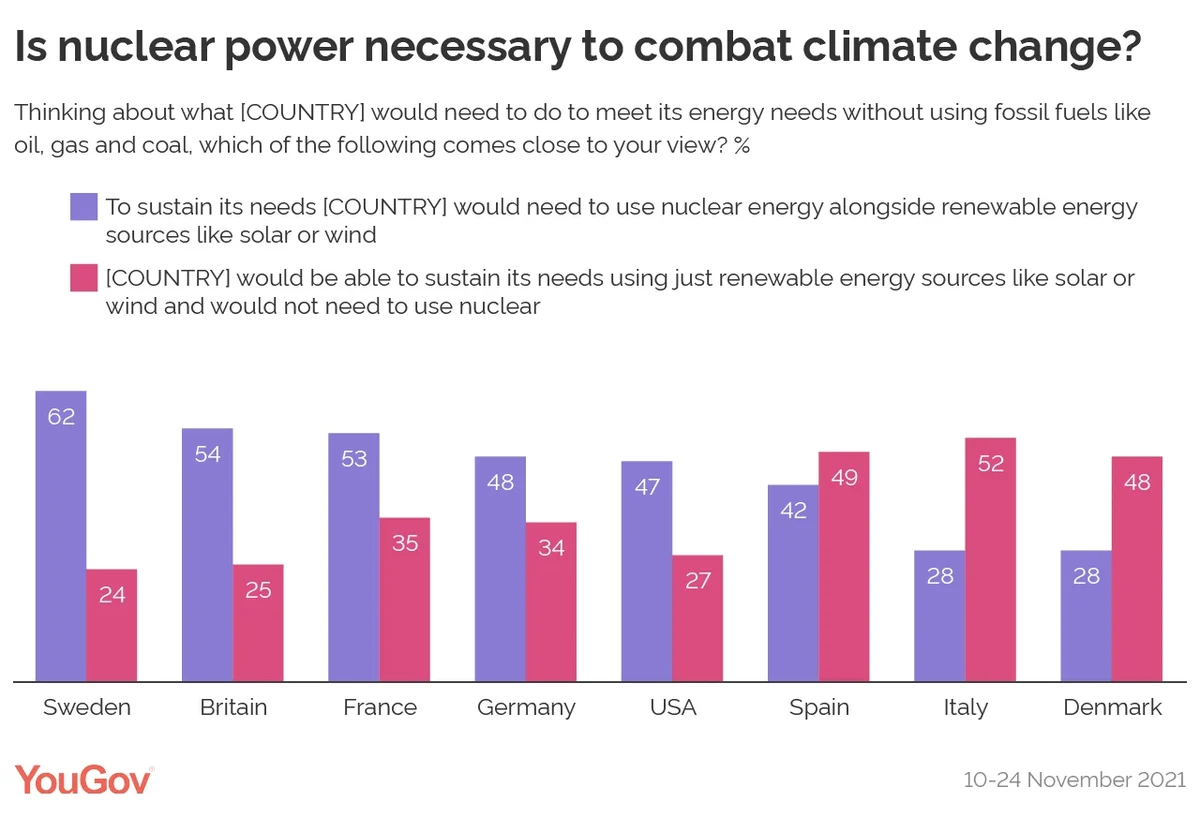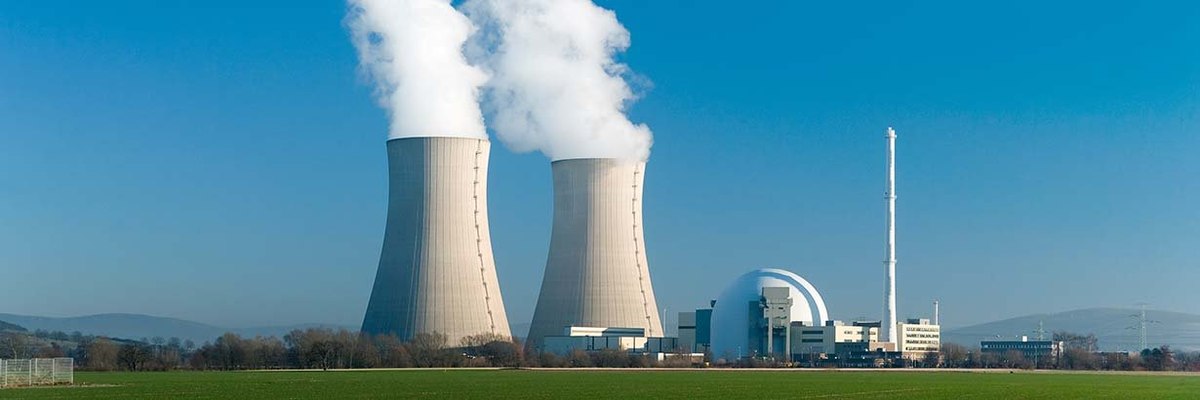Many are confused about whether nuclear produces carbon emissions
In late November, Kadri Simson – the EU’s energy commissioner – called for a “gearshift on investments” in nuclear power on the continent.
Nuclear is embraced very differently by governments across Europe. In France, nuclear accounts for 70.6% of the country’s electricity generation. Next door, Germany is trying to phase out nuclear entirely.
The EU itself is split on how to treat nuclear energy, with debate in Brussels about whether to classify it alongside renewable sources of power as an "environmentally sustainable economic activity”. Doing so would be seen as a direct recommendation to financial markets to invest in nuclear plants, according to German newspaper Die Welt.
A new YouGov EuroTrack survey, also conducted in the USA, shows there is clear confusion about how clean nuclear energy is.
Significant minorities – including a majority of people in Spain – believe that nuclear energy produces either moderate or high levels of carbon emissions. One in three Americans (36%) are also convinced that nuclear energy produces sizeable carbon emissions.
These misconceptions that nuclear energy emits sizeable levels of carbon emissions could be driving opposition to the atom for some people. The data shows that in most countries the less of a role people want to see nuclear power play in the national energy mix, the more likely they are to think that it produces moderate or high levels of carbon.
Do people think nuclear energy is safe?
Perceived safety of nuclear energy also differs greatly between countries. Far fewer people see nuclear energy as unsafe in the two Nordic nations (25% in Sweden and 29% in Denmark) compared to most of the rest of the countries (46-52%). Italy is an exception, where 64% consider the technology to be unsafe. Italians voted in a 1987 referendum to phase out nuclear energy, which was completed in 1990.
That many people see nuclear energy as unsafe is not surprising, given high profile emergencies like Chernobyl (the motivator for the phase out in Italy), Three Mile Island and more recently Fukushima in Japan (which prompted Germany to start getting rid of nuclear).
However, what is perhaps surprising is that comparably high numbers of people consider fossil fuels to be unsafe. For instance, 32-67% consider oil unsafe, 33-60% say the same of coal and 19-50% believe gas is a risky form of electricity generation. The results suggest that carbon emission levels factor in to some people’s risk assessments; these figures are substantially lower for the two renewables we asked about: wind (3-26%) and solar (2-21%).
Nuclear energy is distinct, however, in that the proportion of people who consider it to be “very” unsafe tends to be higher than the number of people who say the same of the fossil fuels. Likewise, more people who consider nuclear to be lower on the carbon emissions scale consider it to be unsafe than is the case for the various fossil fuels.

Is nuclear power necessary to combat climate change?
Despite safety concerns, there is support in most countries surveyed for having nuclear as a part of nations’ energy mix. With the exception of Denmark, where people are split 40% to 37% on whether or not to use nuclear, the number of people in each country who want to see nuclear play a role substantially outweigh those who don’t.
Unsurprisingly, the French are the most keen, with 75% saying nuclear should play a role (including 45% who say it should play a major role), compared to just 9% who don’t want any nuclear generation.
Even in Germany, which is currently decommissioning its nuclear power stations, 53% want nuclear to be a part of the energy mix, compared to 28% who want to see it gone, and likewise nuclear-less Italians support having nuclear by 51% to 28%.

When it comes to whether nuclear energy is a necessity for going green, nations are more mixed. Italians and Danes are far more likely than not to say they can meet their low carbon needs without it. Spaniards also tend to feel this way.
The other countries tend to believe that nuclear will be a necessity, by relatively wide margins. This is particularly true in Sweden, where 62% expect nuclear to be necessary to meet its energy needs if the country gave up fossil fuels, compared to 24% who disagree.








